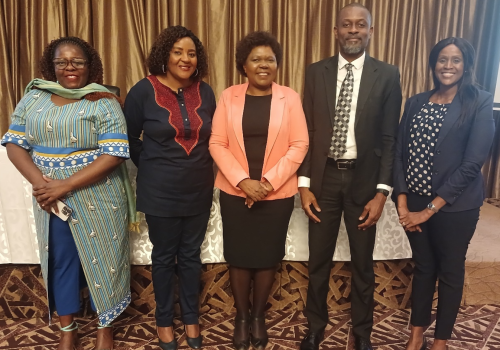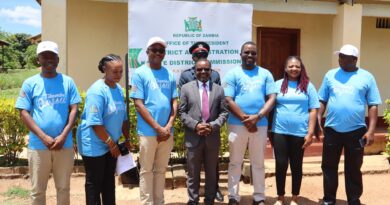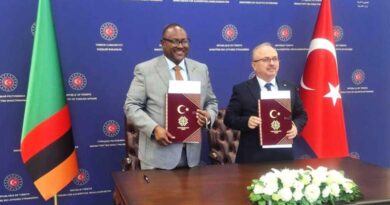SADC Secretariat Joins Zimbabwe in Launching National Action Plan for Women, Peace, and Security
The Southern African Development Community (SADC) Secretariat, in collaboration with the Government of the Republic of Zimbabwe, participated in the launch of Zimbabwe’s National Action Plan for the implementation of the United Nations Security Council Resolution (UNSCR) 1325 on Women, Peace, and Security. The event, held in Harare, Zimbabwe, brought together a diverse range of stakeholders committed to advancing the role of women in peacebuilding and security.
High-level representatives from the government, SADC Secretariat, the United Nations, civil society organizations, traditional leaders’ organizations, Zimbabwe Defence Force, Zimbabwe Republic Police, gender networks, and other stakeholders attended the launch.
The gathering underscored the collective commitment to promoting women’s participation in peacebuilding, peacekeeping, post-conflict reconstruction, and conflict prevention and resolution efforts.
With over 20 years since the adoption of UNSCR 1325, SADC has made significant strides in mainstreaming gender into its peace and security mechanisms. The development and implementation of National Action Plans (NAPs) on Women, Peace, and Security serve as crucial tools in localizing the agenda and addressing the specific challenges faced by women and girls in conflict and post-conflict contexts.
Zimbabwe’s National Action Plan joins those of eight other SADC Member States, including Angola, Democratic Republic of Congo, Madagascar, Malawi, Mozambique, Namibia, and South Africa. These plans outline strategies to enhance women’s participation, prevention efforts, protection mechanisms, and relief and recovery initiatives in conflict-affected areas.
During the launch, Honourable Dr. Jennifer Mhlanga, Deputy Minister of Women Affairs, Community, Small and Medium Enterprises Development, emphasized Zimbabwe’s commitment to amplifying women’s voices, protecting their rights, and harnessing their contributions to peacebuilding.
Dr. Mhlanga highlighted the NAP’s recognition of women as agents of change and leaders in building peaceful societies, emphasizing the importance of enhancing their participation in decision-making processes related to peace and security.
Representing the SADC Secretariat, Mr. Fabrice Kitenge Tunda acknowledged the progress made in the region in terms of women’s representation and participation in decision-making positions within the security sector.
He reiterated SADC’s commitment to supporting Member States in developing and operationalizing their NAPs, in line with the SADC Strategy on Women, Peace, and Security (2018-2030). This commitment aims to ensure equal representation and participation of both men and women in key decision-making roles related to conflict resolution, peacebuilding, and peacekeeping efforts across the region.
Photo: From left to right: Ms. Egnes Nhengo, Ms. Lillian Matsika, Dr. Mavis Sibanda, Mr. Fabrice Kitenge Tunda and Ms. Topo Manabalala
Source: SADC



